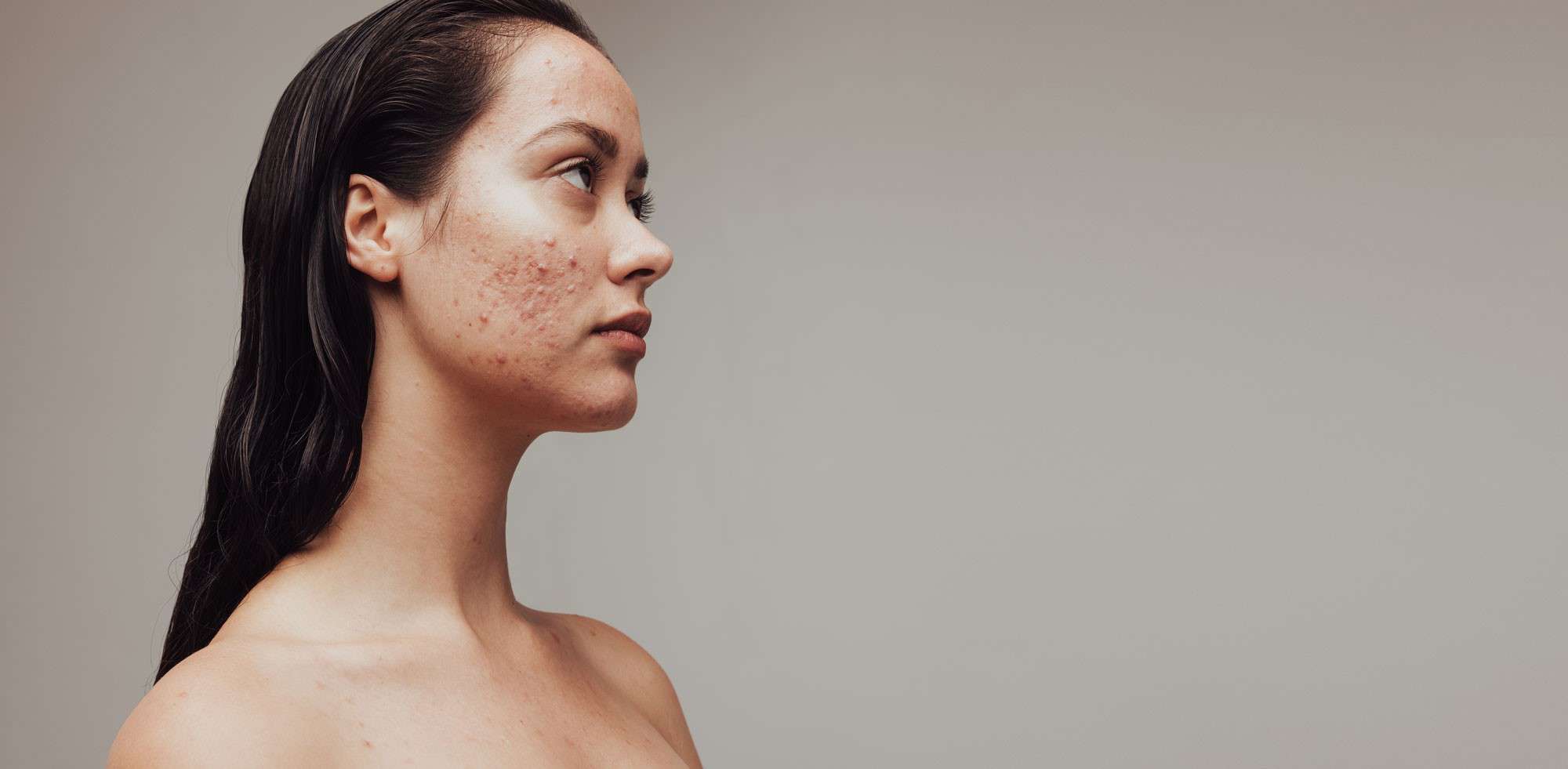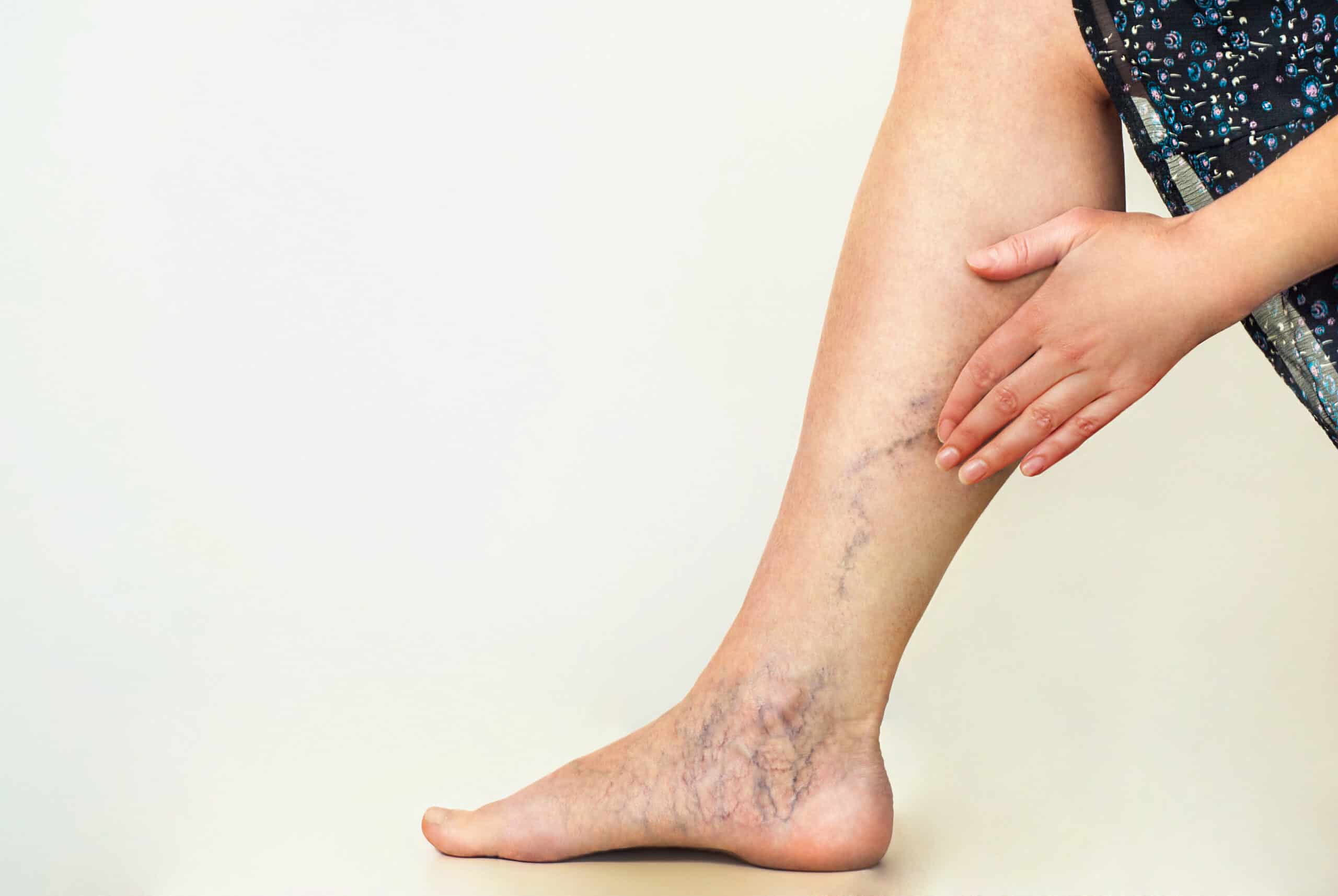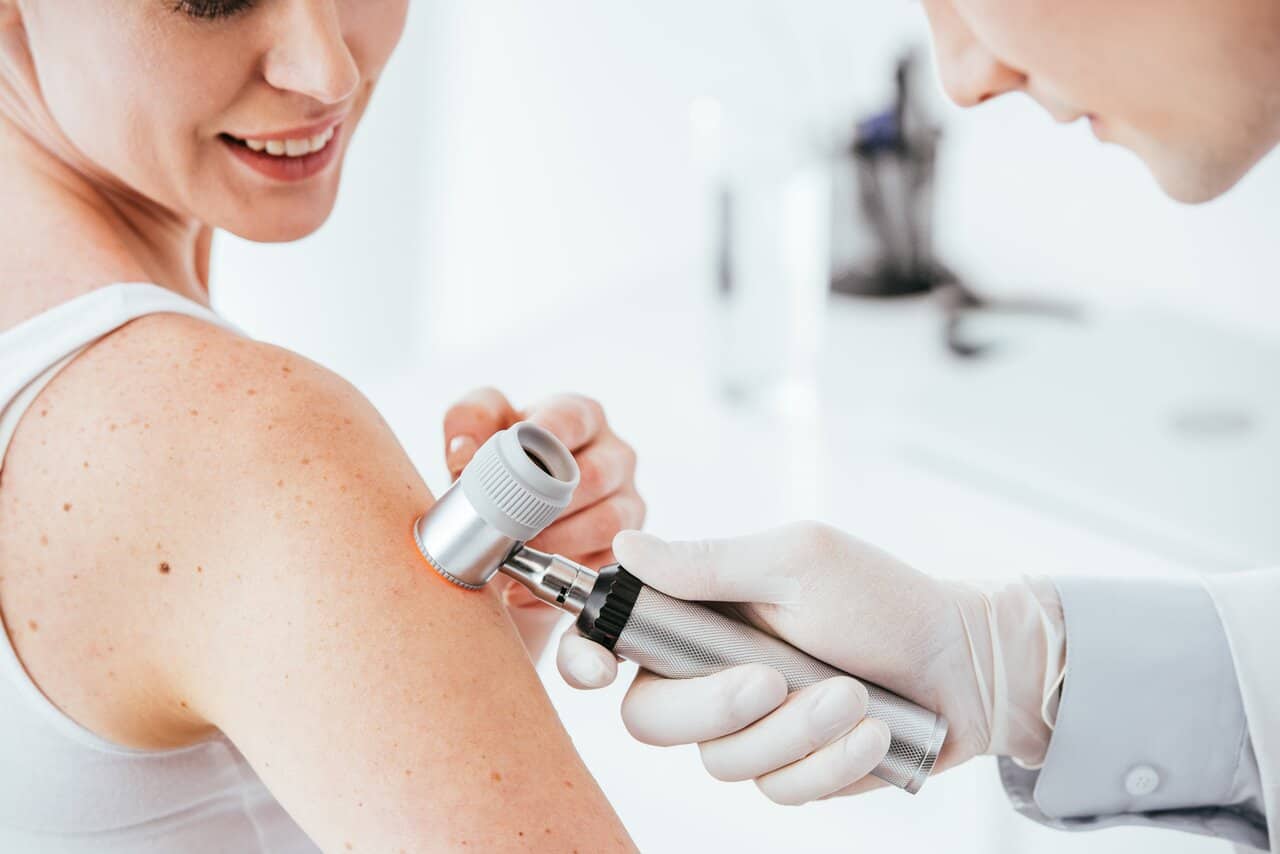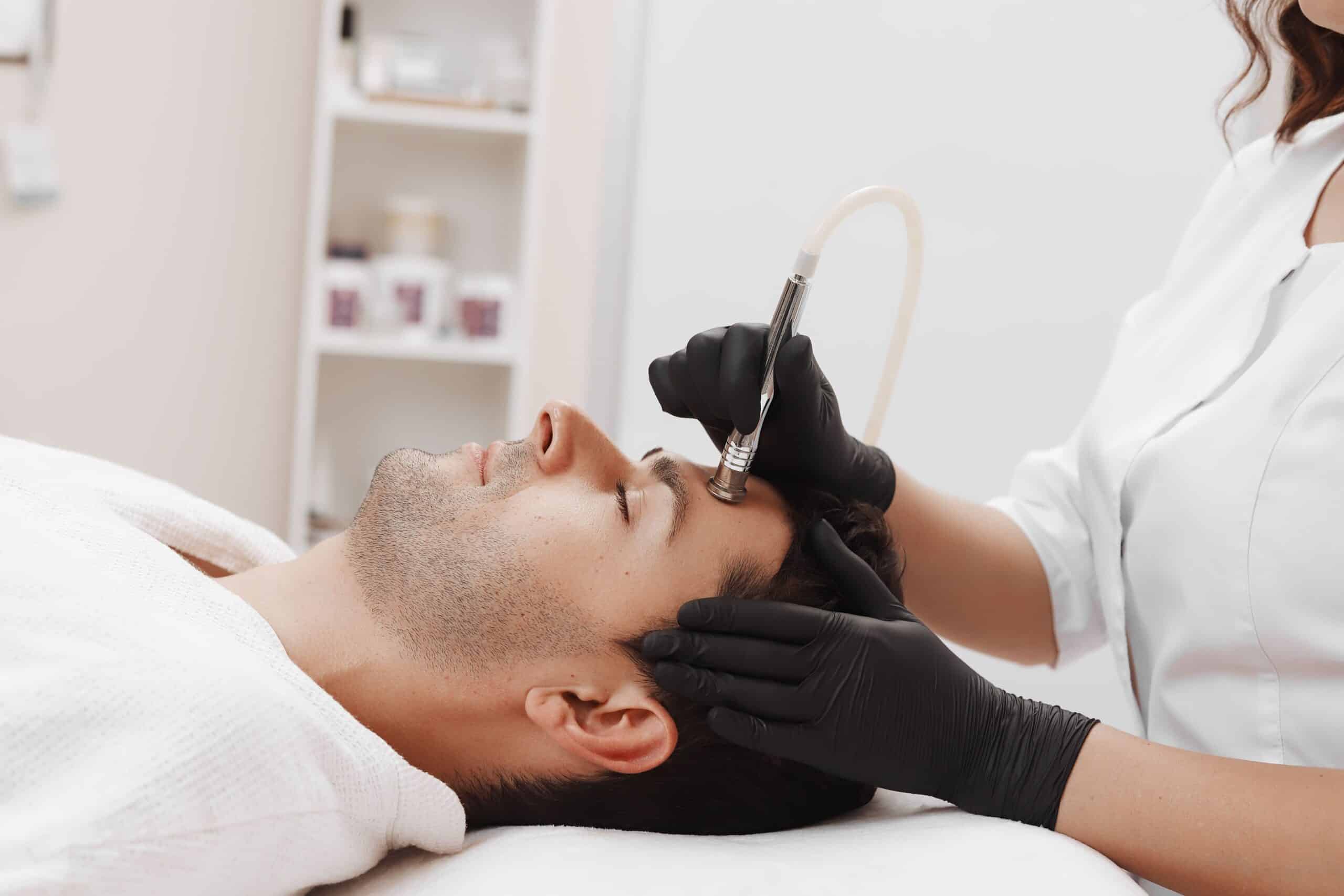SKIN CONDITIONS IN MEN
Many of the most common skin conditions such as eczema, psoriasis and warts are just as likely to affect men as women. However, there are some skin conditions that men are at higher risk of developing when exposed to harmful UV rays regularly or without sun protection. As males have higher levels of the male hormone testosterone, especially during adolescence, teenage boys are more likely to develop acne and require acne treatment. Testosterone encourages oil production in the skin which makes acne more likely to develop. Many men also shave regularly, leading to razor burn, ingrown hairs and more sensitive skin. Sensitive skin is more likely to be prone to allergies and react to external influences such as UV light and wind.
Perhaps one of the most significant differences between skin conditions in men and women is the way that we look after our skin. Women are encouraged to treat their skin carefully using a variety of skincare products including protection against UV rays and are much more likely to see a doctor if they have a problem with their skin or notice something unusual. Men often don’t have a daily skincare routine designed to protect the skin and often ignore their skin, even if something seems wrong, failing to at least visit a doctor for a skin check. This means that men can be more likely to develop preventable skin conditions and leave them longer before seeking help which can lead to irreversible damage.
THE RISK OF SKIN CANCER IN MEN
Melanoma skin cancer is predominantly caused by exposure to sunlight over many years. The impact of these gender differences in attitudes to skincare and skin protection is most severe when it comes to skin cancer. Men are less likely to wear sunscreen or take other steps to protect their skin against sun damage, even when they are spending more time outdoors for work or to play sports. Men are also less likely to check their moles or to see a doctor if they notice any growths or unusual moles. Looking at the incidence rates of melanoma skin cancer in men and women, shows that rates are significantly higher in men than women in the older age groups. This has been attributed to the fact that men are less likely to protect their skin from the sun when they are younger and are slower to seek help when symptoms of skin cancer appear. If caught and treated early enough, there is a 100% chance of survival, however if left to develop and evolve melanoma can be fatal. This is why it is vital that men protect their skin from the sun and consult a doctor if they show any signs of skin cancer.

SKINCARE TIPS FOR MEN
SUN PROTECTION
Sun protection is the most important element of skincare for both men and women as it helps to reduce the risk of developing melanoma and other forms of skin cancer. Preventing sun damage to the skin can also help to slow the effects of ageing. It is important to
- Apply sun cream with a high SPF when going outside in the sun, particularly if you are working outside throughout the day or doing an activity such as cricket where you spend long periods outside
- Wear a hat and light weight clothing on skin which will be exposed to the sun
- Try to avoid the sun when it is at its strongest, around midday
- Don’t use sunbeds
SKINCARE ROUTINE
It is also important for men to have a good skincare routine which involves both cleansing and moisturising the skin. The right skincare routine can improve the look and feel of the skin and also prevent skin conditions such as acne, eczema or psoriasis from flaring up. There are many brands of skincare specifically made for men, however any good brand of skincare will be effective.
A good skincare routine for men should include the following steps:
- Cleanse your skin with a facial wash or bar that is suitable for your skin type twice a day. You can use a toner to remove excess oil after this if you have oily skin.
- Moisturise your face after cleansing. You should moisturise your face and any dry patches on your body at least once a day.
- Protect your skin from the sun by wearing sunscreen with at least SPF 15 every day. The easiest way to do this is by choosing a moisturiser that includes sun protection. Take extra steps to protect your skin in summer by wearing a hat and sunglasses.
- The best time to shave is after a shower when your hair will be softer. Use shaving cream or gel to protect your skin and replace disposable razors regularly. Store your razor in a dry area to prevent bacteria from growing on it.
- Make sure you’re eating a balanced diet, drinking plenty of water, and getting regular exercise. A healthy lifestyle is important for all parts of your body and it can reduce stress, which is bad for your skin.
- Visit your dermatologist for skincare treatments should your skin require some form of treatment.
It is worth stressing how important it is to see a doctor if you notice anything unusual on your skin, especially a growth or any changes in your moles. As discussed earlier, men are much less likely to visit a doctor to discuss their health concerns, but even serious skin conditions can be treated effectively as long as they are spotted early
AUTHOR

DR ADAM FRIEDMANN
CONSULTANT DERMATOLOGIST
GMC: 4425665
Qualifications: MB BS 1997 University of London
Dr Friedmann is a UK-trained Dermatologist who trained at King’s College School of Medicine, London. He has worked at many of London’s teaching hospitals including King’s College, St Georges, Hammersmith, Barts and the London and the Royal Free Hospitals.
Dr Friedmann is Chief Medical Officer of The Dermatology Partnership and Clinical Director of the Harley Street Dermatology Clinic.




